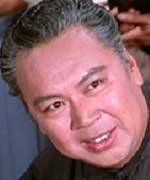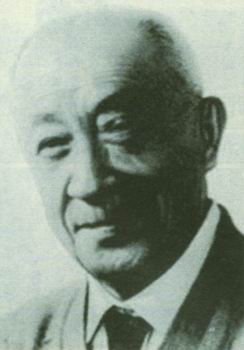Related Research Articles

Shaw Brothers (HK) Limited was the largest film production company in Hong Kong, operating from 1925 to 2011.

Sir Run Run Shaw, also known as Shao Yifu and Siu Yat-fu, was a Hong Kong businessman, filmmaker, and philanthropist. He was one of the foremost influential movie moguls in the East Asian and Hong Kong entertainment industry. He founded the Shaw Brothers Studio, one of the largest film production companies in Hong Kong, and TVB, the dominant television company in Hong Kong.

Diaochan was one of the Four Beauties of ancient China. Although based on a minor historical personage, she is mostly a fictional character. She is best known for her role in the 14th-century historical novel Romance of the Three Kingdoms, which romanticises the events in the late Eastern Han dynasty and the Three Kingdoms period. In the novel, she has a romance with the warrior Lü Bu and causes him to betray and kill his foster father, the tyrannical warlord Dong Zhuo. She was praised in tales as a woman of unrivaled beauty who did what no other hero in China was able to accomplish: put an end to Dong Zhuo's regime of terror and the eventual end of Lǚ Bu; triggering the events that would lead to the formation of the Three Kingdoms: Cao Wei, Eastern Wu, and Shu Han.
Hong Kong action cinema is the principal source of the Hong Kong film industry's global fame. Action films from Hong Kong have roots in Chinese and Hong Kong cultures including Chinese opera, storytelling and aesthetic traditions, which Hong Kong filmmakers combined with elements from Hollywood and Japanese cinema along with new action choreography and filmmaking techniques, to create a culturally distinctive form that went on to have wide transcultural appeal. In turn, Hollywood action films have been heavily influenced by Hong Kong genre conventions, from the 1970s onwards.

Lo Wei was a Hong Kong film director and film actor best known for launching the martial arts film careers of both Bruce Lee, in The Big Boss and Fist of Fury, and Jackie Chan, in New Fist of Fury.

The United Photoplay Service Company was one of the three dominant production companies based in Shanghai, China during the 1930s, the other two being the Mingxing Film Company and the Tianyi Film Company, the forerunner of the Hong Kong-based Shaw Brothers Studio.
Mingxing Film Company, also known as the Star Motion Picture Company, was one of the largest production companies during the 1920s, and 1930s in the Republican era. Founded in Shanghai, the company lasted from 1922 until 1937 when it was closed permanently by the Second Sino-Japanese War.
The Xinhua or New China Film Company, was one of the film studios to capitalize on the popularity of the leftist film movement in 1930s Shanghai, that had begun with the Mingxing and Lianhua studios. It is not related to the modern-day Xinhua News Agency. The production company lasted from 1934 until 1942, when it was absorbed into a Japanese-controlled conglomerate, Zhonglian.

Wan Laiming was a Chinese animator. He was one of the Wan brothers who pioneered the Chinese animation industry, and is commonly considered as China's first animator. As the director of the Shanghai Animation Film Studio, he would raise the standard to International level before other historical events affected the industry.
Sharla Cheung Man is a Hong Kong actress and film producer.

Mulan Joins the Army, is a 1939 Chinese historical war film and is one of several film adaptations of the Hua Mulan (花木兰) legend, a story of a young woman who disguises herself as a man in order to take her father's place in the army. Described as a musical comedy, the film was directed by Richard Poh and stars Nancy Chan as the title character. The success of the movie was evident by its record-breaking run of 83 days in Shanghai. The screenplay by Ouyang Yuqian, was produced in Shanghai by the Hwa Cheng Studio (華成製片廠), a subsidiary of the Xinhua Film Company.

Bu Wancang, also known by his English name Richard Poh, was a prolific Chinese film director and screenwriter active between the 1920s and the 1960s. He was born in Anhui.
Eternity is a controversial 1943 Chinese film made in Japanese-occupied Shanghai during the Second World War. The film was a collaborative effort between the Japanese-controlled Manchukuo Film Association and Chinese filmmakers that remained in Shanghai under the Japanese-controlled Zhonglian Productions brand.

Three Kingdoms is a 2010 Chinese television series based on the events in the late Eastern Han dynasty and the Three Kingdoms period. The plot is adapted from the 14th century historical novel Romance of the Three Kingdoms and other stories about the Three Kingdoms period. Directed by Gao Xixi, the series had a budget of over 160 million RMB and took five years of pre-production work. Shooting of the series commenced in October 2008, and it was released in China in May 2010.

Tianyi Film Company, also called Unique Film Productions, was one of the "big three" film production companies in pre-Second World War Republic of China. Founded in Shanghai in 1925 by the Shaw (Shao) brothers led by Runje Shaw, the company also established operations in Malaya and Hong Kong. Although the company's Shanghai studio was destroyed in 1937 during the Japanese invasion, its offshoot in Hong Kong, later called Shaw Brothers Studio, blossomed into a media empire under the leadership of the youngest brother, Sir Run Run Shaw.
Diau Charn is a 1958 Hong Kong Huangmei opera film directed by Li Han-hsiang. The film is based on the 14th century novel Romance of the Three Kingdoms, and stars Lin Dai as Diaochan.

Wang Danfeng was a Chinese actress who was active mainly between the 1940s and the 1960s. She was one of the most influential actresses in Chinese cinema, and was named as one of the four great actresses in Hong Kong in 1949. She received the official recognition as a "movie star of New China" in 1962 and two Lifetime Achievement Awards in 2013 and 2017. Over a career spanning more than four decades, she starred in more than 60 films.
Hands in the Hair is a 2005 Chinese-Hong Kong romantic ethical film directed by Jiang Cheng and produced by Stanley Kwan. The film stars Rosamund Kwan, Wallace Huo and Francis Ng. It is produced jointly by Shanghai Film Group Corporation and Shanghai Film Studio. The film is an adaptation of Tang Ying's 1995 novel of A Beauty (红颜). The film picks up the extramarital love story of a Shanghai named woman Aini and her lover Ah Hua. Hands in the Hair premiered in mainland China on 7 March 2005 and released in Hong Kong on 14 April 2005.
References
- Fu, Poshek (2003). Between Shanghai and Hong Kong: The Politics of Chinese Cinemas. Stanford: Stanford University Press.